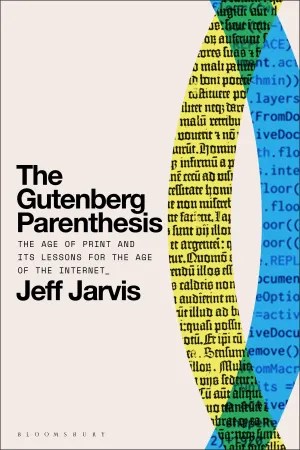I was just asked about CNN’s, Fox’s, and others’ screw-ups with the announcement of the Supreme Court health decision in the context of process journalism. I disagreed with the characterization. My response:
I could not disagree more strongly with your characterization of this as an error of process journalism. Hardly!
This was not a matter of reporting what you know when you know it. This was a matter of reporting your misunderstandings before you know enough to say that you know anything.
The entire decision was made and written. CNN, Fox, and others listened to a bit and went with it.
The New York Times, on the other hand, essentially admitted it didn’t understand enough to make some things clear. It was oddly phrased — saying that something about the decision couldn’t be known when, instead, it couldn’t yet be understood fully. Whatever. At least The Times used restraint and appropriate caveats. We saw a similar case in the Italian murder appeal of Amanda Knox, when TV said too much too soon.
(Later: What the Times said in its earliest version was: “It remained unclear whether the court officially upheld the mandate or chose a more technical path that effectively allowed it to stand.” Well, yes, it remained unclear to The Times because The Times hadn’t had the opportunity to absorb and understand the decision and its implications yet. It said so.)
In true process journalism, the news itself is a process, not a fait accompli like a court decision. Process journalism is about news itself as a process and journalism following that process — again, with due caveats. Process journalism is about covering a truly breaking story — a storm, a riot, a revolt, say — and recognizing that fact in how we cover it.
This was a matter of TV news making bad assumptions on too little information and speaking too soon. That has been the danger since 24-hour news immemorial.
The real lesson here is that the scoop is and always has been a dangerous act of journalistic narcissism. Did it truly matter if one outlet “broke” the same information that other outlets — and the world of the internet — knew a second before another? Or was it indeed worse when those outlets got it wrong because they were hasty and stupid? They were still seduced by the scoop, which has no value in media that operates at the speed of the link.
Journalists must think how they can best add value to information, not how they can most rapidly repeat it. Explaining the story is adding value. Getting it wrong detracts value and devalues credibility.
CNN and Fox and others fucked it. It’s as simple as that. It’s not a matter of process journalism. Please!
After I wrote that, my correspondent wrote back quoting my discussion of process journalism with references to, for example, the misreports in the breaking, moving, confusing stories of tornadoes and shootings. I added this:
That’s talking about things that are presently unknowable by the reporter but are known, the reporter hopes, by others. (Does anyone know of prior problems with this politician? Does anyone know whether the power is still out downtown?). That is *not* the case here. Everything that needed to be known by CNN and Fox was knowable. They just spoke before they knew it. I repeat: That’s fuck-up journalism, not process journalism. Please do not libel the one with the other.
LATER: Steve Myers of Poynter continues to go down the road of blaming process journalism for CNN’s and Fox’s fuckup. I was responding to him above.










I imagine we’ll see more of this as the “not wrong for long” crowd’s thinking spreads.
Umm, LABEL one with the other. Unless you’re channeling Sarah Palin.
As I believe you’ve said before (and I’ve often used): Scoops have the half-life of a link.
81 year old live blogger on Scotus blog got it right. Wolf Blitzer ain’t in his league.
Team Lyle rules.
Referring to bad and rushed journalism as process journalism is what he’s calling libelous.
Process journalism would have been: “stand by, we’re reading this monster ruling” followed by “ok, here it is.”
Jeff, I’m in a small and largely rural media market in Alabama. Even though it’s a small market, the three players in the local TV news media that are the main source of information dispersal in the area are in cutthroat competition with each other. They’ve been running attack ads targeted towards each other in the past month with different claims of who delivers the news first. One of them has tried to craft a narrative of delivering “breaking news, not broken news.”
I’m friends with a few of the on air journalists on two of the local stations, and I’ve tried to stress to them that as a viewer, I don’t care who gets it first. Overwhelmingly, I care about who gets it comprehensive and who gets it right. Even though we live in a rural area, we still have a large percentage of citizens who are using services like Twitter in a broadcasting capacity. If there’s some “breaking” local news like a robbery or traffic tie up, I often know about it first from a citizen journalist instead of a paid one.
I don’t think it’s the place of a professional journalist to worry about speed, that’s taken care of for them from a million different angles. What I want from them is the detail that the citizen journalists can’t possibly deliver. However, they just don’t seem to understand that. Perhaps being able to thump your chest with the claim that you have it first is more attractive to advertisers.
I agree! I usually know about breaking news by word of mouth. When I actively look for a news story, I’m looking for comprehensive coverage. That’s one area where newspapers still seem to have an edge (maybe the only edge they have anymore).
Jeff, you are overlooking an important fact here: that the result was known before Fox and CNN misreported it. Hundreds of thousands of people were logged on to the distinguished SCOTUS blog’s live blogging of the decision. SCOTUS blog is run by the very well-respected Supreme Court advocate Tom Goldstein, his wife Amy Howe (also a lawyer) and reporter Lyle Deniston. Before Thursday, there were many stories about SCOTUS blog being able to report the result first, including an extended NPR interview with Tom. Tom explained why he would be able to report the result first: the Court releases in its Public Information Office the hard copy of the decision at the moment the opinion is announced, in summary form, in the courtroom. When the decision is released in the courtroom, those in the courtroom, who do not have access to phones, laptops, etc., are at a distinct disadvantage: they are not allowed to leave until the announcement is over, nor can they read the opinion. Those with the hard copy in the Public Information Office are at an advantage: they have the actual opinion, which they can skim, and can they report on it instantly since they have access to electronic media.
So, when the health care opinion was announced, SCOTUS blog’s folks reported it before anyone else and accurately. Fox and CNN, without having read either the opinion itself or apparently without going through the simple, free process of watching the SCOTUS blog, blew it. Why didn’t a single Fox or CNN reporter go to SCOTUS blog, which digested the opinion accurately before anyone else? There was no failure to scoop. There was a failure to consult either the opinion itself — in the Public Information Office, where it was available — or to consult the leading experts in the field, SCOTUS blog.
To me, the debacle points out, once again, that some (though certainly not all) of the traditional media cannot keep up, in time, understanding, and in this case perhaps ethics. A blog, run by top experts, beat the pants off them. This should no longer be a surprise.
That is exactly what SCOTUS Blog did.
I believe what happened was Fox & CNN’s analysts got to the commerce clause rejection and yelled out “It’s overturned” before they got to the tax paragraph, and that got posted. SCOTUS blog wrote something like “We’re reading the syllabus now. Stand by.” And they got it right.
The scoop should have died years ago. The whole concept was born in an era when a scoop lasted 24 hours – a full day of the competition scrambling to catch up and of readers buying your newspaper instead of the other guy’s. It had real benefits. A 5 minute “scoop” is meaningless. Also, scoops usually referred to stories the competition didn’t have at the same time – either an exclusive or something the competition was behind on. When a gaggle of reporters are getting a court decision at the exact same time and one posts the news first, that’s not a scoop, it’s just fast typing. And it leads to nonsense like we saw yesterday.
I was watching 2 different news media plus the live feed of the”lady outside on mobile”–all three fu***ed it up at the same time. Now telling the story with such, accuracy, flaunting perfection is whatever type journalism you decide it should be called Jeff. All responsible or played a part in this awful reporting deserved as “good” as you “gave” it. Great report..also called “no holding back” journalism!
How is reporting – accurately or inaccurately – the decision of one of the most highly anticipated Supreme Court rulings of all time considered a “scoop?”
Jeff Jarvis thinks you can libel something that’s not human?
Wait. Broadcast or publish a story when you’re sure of what the facts are? You new media types are brilliant.
“I never got a scoop in my life. Most scoops were bad stories, and they were always exaggerated and played up in an idiot manner.” –H.L. Mencken
And what about the vague reporting of the recently identified Higgs boson ‘god particle’? No-one really knows what it is or how it works; nor is there yet a vocabulary to describe it sensibly. But don’t let that stand in the way of the journalist whose narcissism demands that he or she must say something intelligent about it.